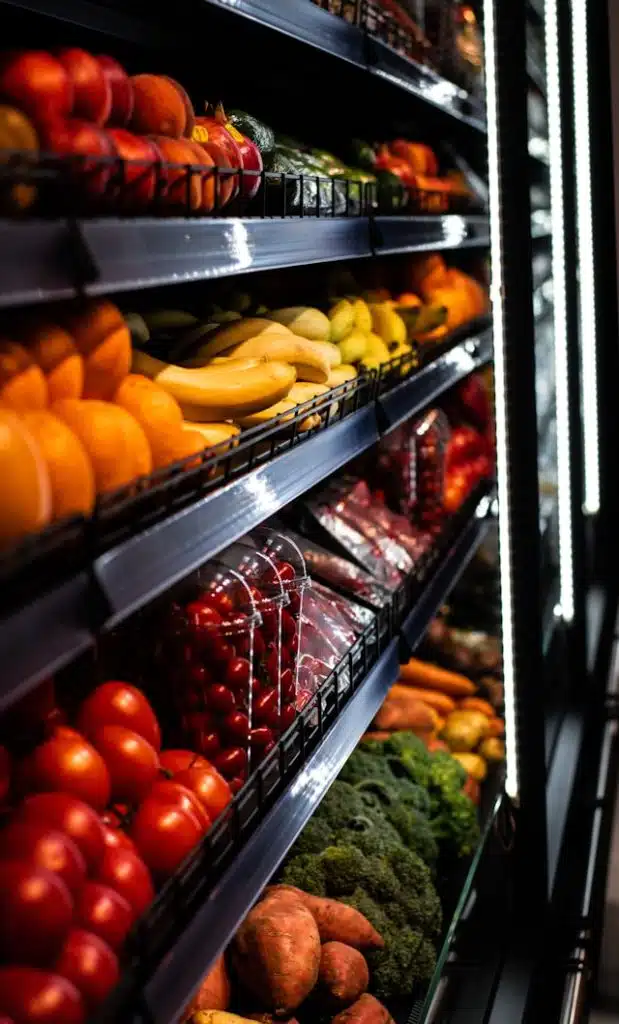Recent months have been busy for Prime Minister Keir Starmer, having secured trade agreements with the EU, USA and India which promise to rewrite the future of the food and agriculture sectors. With these agreements having largely been welcomed by the UK food industry, attentions will now turn to ensuring the UK remains firm in a turbulent geopolitical environment to uphold future protection of UK food production.
UK-US
Among the most headline-worthy agreements is the revised trade policy for the beef and bioethanol sectors between the USA and UK. The Prime Minister allayed tariff concerns and secured reciprocal access to US beef markets, permitting British farmers to export up to 13,000 metric tonnes of beef per year. In return, the 20% tariff on US beef imports has been removed, as have tariffs on US ethanol and bioethanol.
The government has assured the food industry that closer ties to the US market will not be to the detriment of UK food standards. Concerns over chlorinated or hormone-treated meat, which is legal in the US but banned in the UK, have frequently been raised by British farmers and consumers. Defra secretary, Steve Reed, clarified that British standards will be upheld and agricultural food imports must still adhere to UK standards. The UK has previously come under pressure from the USA to dilute these standards.
While the UK appears firm in its resolve this time around, some in the sector are concerned that competition with cheaper and lower quality international products might push British farmers out of the market and force the government to revise its standards. The National Farmer’s Union has expressed concern that US beef might undercut British beef as it is often cheaper, making it an attractive product to hospitality and catering groups but putting British meat at risk. The food sector should be vocal about holding the government to account on food safety and standards, and promoting British products, in order to insulate the sector from potential risks.
While the agreement presents a series of opportunities for British farmers to capitalise from profitable US beef markets, the industry must closely monitor the UK’s dedication to strict food standards.
UK-India
The UK has signalled its interest in forging closer economic ties with India, with the IMF predicting it to be the third largest economy by 2030. The UK-India Free Trade Agreement commits India to reduce tariffs on 90% of UK exports, with the UK in return scrapping tariffs on 99% of Indian exports. Similarly to the US agreement, it is hoped that this will reap long-term benefits for British farmers.
Lamb exports to India, which had previously been subject to a 33% import duty will now face no cost, increasing British competition in Indian markets. Other UK goods including chocolate, salmon and cod will also be tariff free, and alcohol including whisky and gin will see their tariffs halved to 75%.
Following the deal, the government has confirmed that British food standards will be upheld. However, Indian use of pesticides has been raised by farming and environmental groups who have suggested this could cause risk to UK consumers. The Pesticide Action Network has labelled the deal a ‘toxic trade’, given the higher number of highly hazardous pesticides that India permits on its produce. As concerns have been mounting following both the India and USA agreement, businesses operating in the food and farming sector should consider how they best communicate their concerns to government.
UK-EU
Rounding off a busy month of trade negotiations was the agreement with the EU. A natural ally on the importance of high food standards, the EU deal was a slightly simpler process given there was no pressure to dilute the UK’s position on food and welfare standards. The deal removes some routine checks on animal and plant products, easing the flow. Additionally, the deal enables raw meat including burgers and sausages to be sold back to the EU for the first time following Brexit under new sanitary and phytosanitary (SPS) agreements.
While the trio of trade agreements will significantly broaden opportunities for British farmers and help boost UK competition, many fear they will ultimately dilute the government’s commitment to food and welfare standards. The government has signalled that it is not willing to jeopardise its commitment to health and food standards – yet. However, food and farming businesses must remain alert to the threat that cheaper overseas products can have on British markets and the potential for costs to be saved through lower food safety regulations.
Despite the government’s commitment to “Back British” produce so that 50% of food supplied in catering contracts comes from British farms, it is essential that Defra is held to account on this. Keeping on top of government policy and actively communicating the importance of food standards to policymakers will be key to protecting British food.


